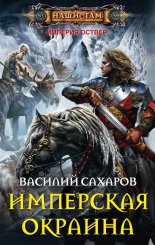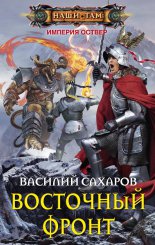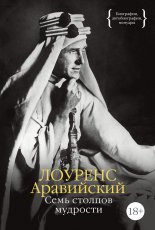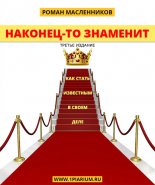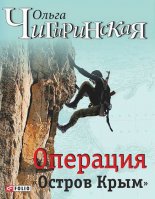Ирония идеала. Парадоксы русской литературы Эпштейн Михаил
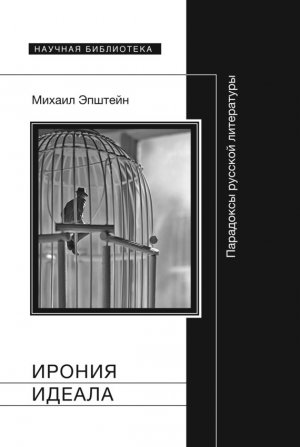
идеал
идеократия
идеология
идиллия
идол, истукан
имя
имяславие
интеллектуализм
интерпретация
инцест
ирония
иррациональное и гиперрациональное
искра (в хасидизме и у Пастернака)
Каббала
климат
колдовство
комическое и трагическое
компаративистика (сравнительно-исторический метод)
концептуализм
космизм
кузнец
ландшафт
литературоведение, критика
личность и народ
Логос
любовь
людобоязнь, социофобия
магизм
маленький человек
маниакальность
марксизм
мат
материя, материализм
мать
махроть (у Пригова)
метанарратив
метареализм
метафизика
метрополитен
мефистофелевское
милицанер (у Пригова)
миф, мифология
молчание
море
набоковское
немецкая философия
нетка (у Набокова)
нирвана
ничто, небытие
ночь
нравственность
Обломагин (литературный тип)
обломовщина, Обломовка
одиночество
оживление
остранение
отец, отцовство; отцеубийство
отрицательная эстетика
оцепенение
панночка
парадокс
пародия
партийность и тоталитарность
патриотизм
Петербург
Петр I
писец, переписчик
платоновщина
повтор
подземелье
политическое и мистическое
посмертие
потустороннее
почерк
пошлость
поэзия; поэтическое и философское
поэма и сказка
призрак, призрачность
природа
проект
прототип
психиатрия, психотерапия
психоанализ
пустота
разум; иноумие; самокритика разума
речь; многоречивость
родина
романтизм
Россия; русский ум
русская литература (как целое)
рыдание
самодержец
сатанинское
свет
святой
семья
сентиментальность
сиротство
сказка и поэма
скука
слово; и действие; слово-фикция
смерть; смертствование; мертвый брат (у Платонова)
сознание: сознание-о; разорванное и сорванное сознание
сон, сновидение
София, софиология
социофобия, людобоязнь
Средиземноморье (Греция, Италия)
статуя, скульптура
стихия
субботник
субъект и объект
сумасшествие; сумасшедший дом
существование
счастье и несчастье
тайна
талмудизм
типология
тишина
тоталитарность
трагическое и комическое
труд
фаустовское
феноменализм
философия; любомудрие
фольклор; мещанский
футляр
хасидизм
христианство
хронотоп
цикличность (в литературе)
цитата,цитатность
черт
шахтер
Эдипов комплекс
экзистенциальность
эроика (сочетание героики и эротики)
эрос, эротизм
эстетизм
эсхатология
юродивый
язык; поэтический
SUMMARY
The Irony of the Ideal:
Paradoxes of Russian Literature
Mikhail Epstein
Russian literature is prone to self–contradictions. This book investigates the paradoxical logic of self–denial characteristic of certain authors and literary epochs and trends. A “paradox” is a situation or utterance that, according to its own logic, unexpectedly contradicts itself, refutes its own premises, and lays waste to its own foundations. Besides this international term, Russian also has colloquial words and idioms to express the experience of the perversity of existence: za chto borolis’, na to i naporolis’ ‘the very thing we were fighting for is what we skewered ourselves on’ (to describe people being harmed by the unintended results of their actions).
This manner of moving from thesis to antithesis is quite typical of Russia. Such a dialectic has little in common with the Hegelian or Marxist dialectic, where one presumes that both thesis and antithesis are sublated (the unity of and struggle between opposites). Instead it is a sort of reinforcement and intensification of the thesis, of taking the thesis to the extreme where it turns into its own antithesis and begins to undo itself. This kind of dialectic can be called ironic, in that it returns to the original thesis, but now with a minus sign. As Andrey Bely wittily remarked, the triumph of materialism in the USSR led to the abolition of the material. Striving for the highest ideals– freedom, good, greatness, reason, harmony, happiness – in each case brings forth the reverse and turns into suffering, poverty, slavery, absurdity. Russian literature, like Russian history, is full of such unexpected twists and the pathos of tragic irony.
If a culture has no established neutral zone, it starts to be thrown from one extreme to the other, from piety to godlessness, from asceticism to debauchery. Binary thinking leads to revolutions, to a “revolving” model of development where opposites rapidly change places, but no gradual evolution occurs. All the extremes are accentuated: God and the devil, holiness and sin, spirit and flesh, religion and atheism, Christianity and paganism, the God-Man and the Man-God, the state and the individual, power and anarchy… Even when Russian culture makes an attempt to unite its poles, this is not accomplished through their evolutionary moderation, but by their direct confrontation, as in the is of the “excessively broad” person in Dostoyevsky who simultaneously contemplates the void below and the void above, the ideal of Sodom and the ideal of the Madonna.
Russian culture has acquired a means of working with these oppositions that consists of “twisting” and “inverting” them: the lofty and grand reveals its demonic traits, while the low and petty displays traits of spiritual asceticism. The culture’s dynamism comes through in its supercharged paradoxicality. If Peter the Great and even Russia itself take on demonic features in Pushkin’s and Gogol’s depictions, it is also true that one of the littlest “little men,” Bashmachkin, evolves as a literary type to become Prince Myshkin, the most exalted i in Russian literature. This model of the ironic “inversion” of opposites allows us to penetrate into the persistent structural idiosyncrasies of Russian culture, which recur in its various historical stages: pre-Soviet, Soviet, and post– Soviet.
Joseph Brodsky famously stated that “appetite for metaphysics distinguishes a work of art from mere belles-lettres.” A peculiarity of this book is the attention to the metaphysical underpinnings of Russian literature, to its intellectual “underside,” the indirect and “accidental” positing of eternal questions that sets it apart from philosophy. The author is more interested in the metaphysical “unconscious” of Russian literature than in the more or less well-known philosophical and religious views of its creators. The book examines, for example, Pushkin’s poem The Bronze Horseman and his “Tale of the Fisherman and the Fish,” both written in October 1833, as two variations on a single metaphysical theme: “the power of humans over the sea and the vengeance of the unrestrained elements.” The book explores the i of Russia in the famous lyrical digressions in Dead Souls as a development of Gogol’s demonology (“Viy”, “The Portrait”), with Russia unwittingly presented as a witch. The poetry of Pasternak and Mandel’shtam is interpreted in the context of the Jewish spiritual traditions that they inherited but hardly realized completely—Hasidism and Talmudism.
All of this is done not for the purpose of “exposing” the writers’ incomprehension of themselves, but to envision the interconnection between the metaphysical is and artistic ideas at work in the entire space of Russian literature.
